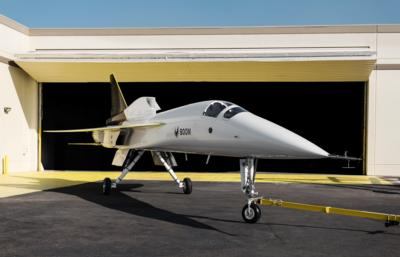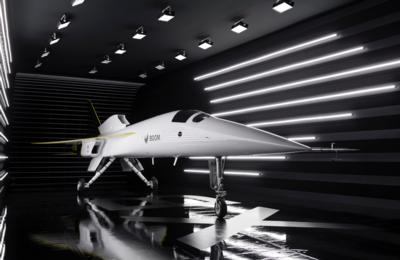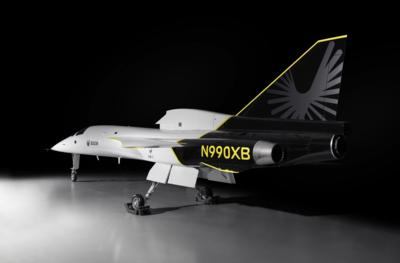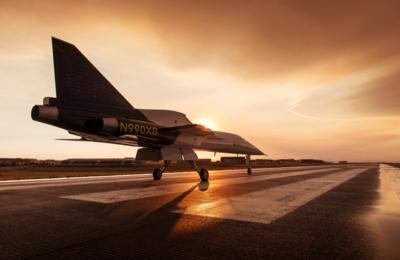Thu, Oct 08, 2020
'First Independently Developed' Supersonic Aircraft Is Shown To The Public
Boom Supersonic has finally taken the wraps off its supersonic demonstrator, XB-1, reportedly the first independently developed supersonic jet.

To design and build XB-1, Boom recruited a team of experts from around the industry, forged relationships with key suppliers, and built a strong safety culture. XB-1 is slated to fly for the first time in 2021 and will undergo a 100% carbon-neutral flight test program. Boom’s innovations include developing one of the highest-efficiency civil supersonic engine intakes ever tested, demonstrating Boom’s ability to deliver a breakthrough in propulsive efficiency for Overture.
“Boom continues to make progress towards our founding mission—making the world dramatically more accessible,” said Blake Scholl, Boom founder and CEO. “XB-1 is an important milestone towards the development of our commercial airliner, Overture, making sustainable supersonic flight mainstream and fostering human connection.”
Boom’s XB-1 virtual rollout highlights some of XB-1’s notable features including:
- Shape: XB-1’s 71-foot-long fuselage has been optimally shaped for high-speed aerodynamic efficiency.
- Materials: The carbon-composite airframe maintains its strength and rigidity, even under the high temperatures and stresses of supersonic flight.
- Wing: The delta wing balances low-speed stability at takeoff and landing with high-speed efficiency.
- Propulsion: Three J85-15 engines, designed by General Electric, provide more than 12,000 pounds of thrust, allowing XB-1 to fly at breakthrough supersonic speeds.
- Cockpit ergonomics: Guidance and feedback from XB-1’s test pilots played a key role in cockpit design, which was the product of hundreds of hours of human factors and usability testing.
- Forward vision system: XB-1 leverages a high-resolution video camera and cockpit display to give pilots a virtual window through the nose, providing superior runway visibility for landing.
After Wednesday's rollout, the XB-1 will complete its ongoing, extensive ground test program before heading to Mojave, California in 2021 for flight test. At the same time, the company will finalize Overture’s propulsion system and conduct wind tunnel tests to validate aircraft design. When XB-1 breaks the sound barrier in flight, Boom will be finalizing the design of Overture, whose own rollout is on track for 2025.



More News
Outboard Section Of The Right Wing And The Right Flap Separated In Flight And The Airplane Impacted A Farm Field Analysis: The pilot was approaching his destination airport under i>[...]
Final Approach Fix The fix from which the final approach (IFR) to an airport is executed and which identifies the beginning of the final approach segment. It is designated on Gover>[...]
"Our choice of when to respond, how to respond and on which targets to respond is a consideration that we make every time... Netanyahu also noted that anyone attacking Israel &ldqu>[...]
Estimated (EST) When used in NOTAMs “EST” is a contraction that is used by the issuing authority only when the condition is expected to return to service prior to the e>[...]
Aero Linx: Coalition of Airline Pilots Associations (CAPA) The Coalition of Airline Pilots Associations (CAPA) is the world’s largest pilot trade association representing ove>[...]
 NTSB Final Report: Cessna 177B
NTSB Final Report: Cessna 177B ANN's Daily Aero-Term (05.08.25): Final Approach Fix
ANN's Daily Aero-Term (05.08.25): Final Approach Fix Aero-News: Quote of the Day (05.08.25)
Aero-News: Quote of the Day (05.08.25) ANN's Daily Aero-Term (05.09.25): Estimated (EST)
ANN's Daily Aero-Term (05.09.25): Estimated (EST) ANN's Daily Aero-Linx (05.09.25)
ANN's Daily Aero-Linx (05.09.25)






